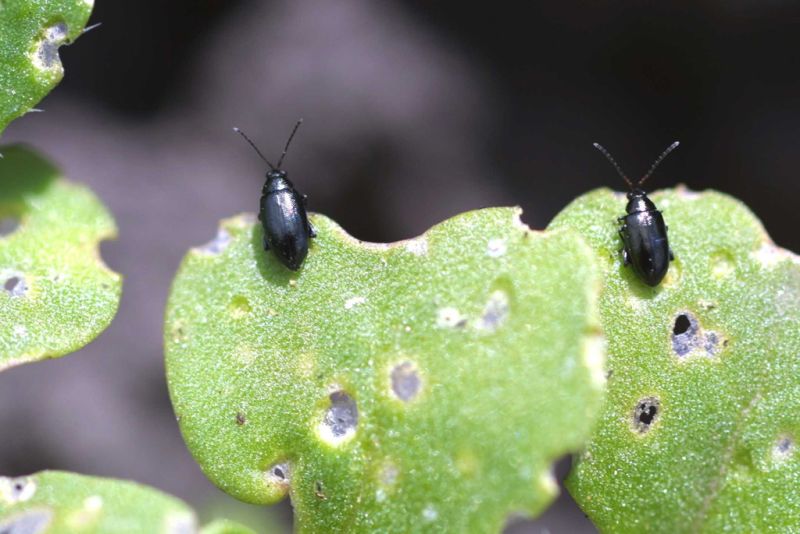
Oilseed rape growers have the chance to lead research into a non-chemical control of cabbage stem flea beetle in the second stage of a field lab.
The trial, led by research network Innovative Farmers, will involve defoliating the crop before the end of January to tackle the beetles during the larval stage.
It comes in response to pest control concerns from farmers following the neonicotinoid ban and widespread resistance to foliar pyrethroid sprays.
In winter 2018-19 farmers trialled using sheep, mowing or topping to defoliate and their results in spring saw an average larval reduction of 39% in the defoliated crops – but for many this was followed by an overall reduction in crop yield at harvest.
However, one farmer reported a yield increase and initial plot trials with ADAS also saw small increases with December and January defoliations.
It is therefore thought timing is key and defoliation done earlier – certainly before the crop reaches stem extension - will give the crop enough time to bounce back.
One farmer also reported that the reduction in yield was down to allowing sheep to graze for too long and where grazing was restricted and done earlier the crop responded better and still saw the crucial reduction in larvae.
The research, now in its second year, is being extended for another year, with funding from AHDB Cereals and Oilseeds and BASF, and will test the timing theory in real farm settings, as well as assessing any variation in results down to weather.
For the first time, this field lab will also investigate the size of the larvae – which is thought to have an important impact on yield loss.
Farmer Chris Eglington, SS Eglington and Son Ltd, said: “The grazed plot produced a much lower yield than had been expected compared with the rest of the field, but I’m keen to try defoliation again.
“I have already grazed another plot of oilseed rape in early November to see if earlier grazing will have a positive effect on yield.
“One bonus of the grazing is that it acted as an excellent charlock control so I’m interested to see if I can get a similar effect again next year and getting data from your own farm rather than others is invaluable.”
The second stage of the research comes amid ever-growing concern on controlling cabbage stem flea beetles, with some farmers involved in the trial seeing record numbers of adult beetles this autumn and unable to defoliate this winter as crops have already been decimated by the pest.
Dr Sacha White, senior research entomologist at ADAS who led the initial plot trials and is involved in the field lab, is therefore looking for farmers able to attempt defoliation in December or January.
He said: “The yield results from year one of the research were disappointing but we believe this is down to timing as the crops didn’t have time to recover, rather than being down to the method itself.
“It could also be in part due to the weather as the mild winter conditions may not have killed off larvae and poor spring conditions may have limited crop recovery.
“This year, many early sown crops have survived adult flea beetle feeding but are likely to have high larval loads and so defoliation may be ideal for these crops.
“With farmers dealing with devastation caused by this pest and no effective control available, it is crucial that we explore the factors that can impact on potential solutions and that the research takes place on real farms with real farmers.”
Anyone growing winter oilseed rape can get involved in the field lab and will be able to choose the defoliation method that best suits their farm, such as using a topper, mower, grazing with livestock, or rolling the crop.
